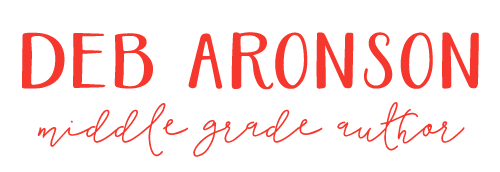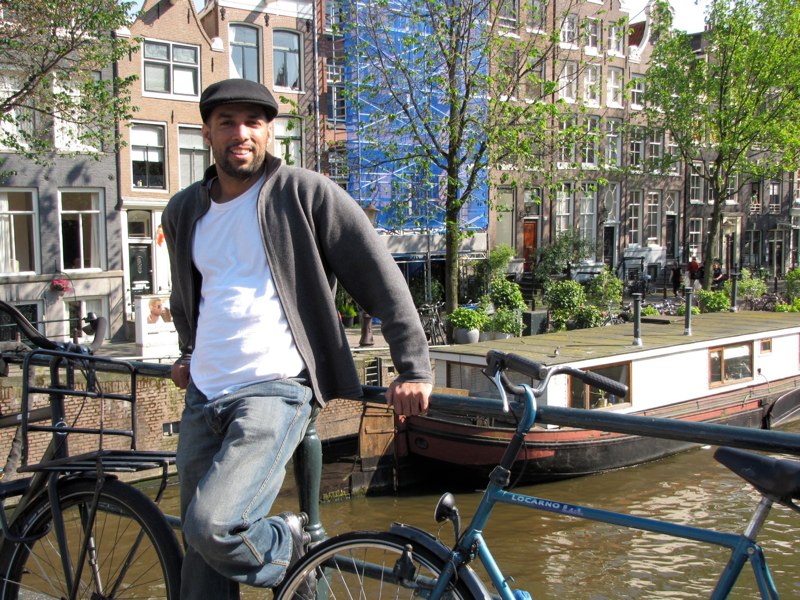Adam Banks on How CCCC Can Help Re-vision Higher Education
NCTE Council Chronicle November 2013
For Adam Banks, 2014 CCCC chair, the conference is an opportunity to look hard at the future and figure out how to get there.
The Convention, scheduled for March 19-22 in Indianapolis, will provide countless opportunities to understand and address the tectonic shifts occurring in higher education generally and in the fields of composition and communication specifically. With about 600 sessions over three days, participants will have 25-30 panels to choose from in each time slot. That means there will be something for everyone, from graduate students and adjunct professors, to those with 20 and 30 years in their field, those who are department chairs or those running a graduate program. And many, if not most, sessions will be documented with social media.
“We will have appointed curators who will tweet and blog during the sessions and afterwards to encourage people to interact with one another after each session,” says Banks. “This is the first time we’ve ever done this in a formal, structured way.”
Banks hopes the CCCC Convention (www.ncte.org/cccc/conv) will address such disparate topics as diversity, technology and fair use, all in the context of major changes, both sociological and technological, taking place in society as well as in the academy.
The Unique Position of Comp & Rhetoric
Composition and rhetoric is in the unique position of touching almost every student who comes through any college anywhere, observes Banks.
“On the one hand it’s a tremendous service obligation and responsibility,” says Banks. “It’s also a real opportunity to help rethink what higher education means.”
To open the doors of higher education and really make it welcoming to all, Banks says, we need to include the “rhetorical techniques and traditions of marginalized groups.
“Part of what we’re doing in the first year writing courses is to prepare students to navigate college,” says Banks. “A crucial, crucial issue for me is how we collectively [not just composition faculty] get higher education to actually look like America in all its range, its diversity with respect to, not just race but ability/disability, sexuality and gender,” he says.
“I’m talking about [the fact that] a black student, no matter where she comes from, whether that’s the hills of Appalachia, or Chicago or Philly, should be able to hear her voice or the voice of people she comes from,” says Banks. “Or an indigenous young man, whether coming from a reservation community or from Any City, USA, should see something in writing instruction that leaves him feeling that he and his people’s traditions are being honored.”
New Intellectual Partners
The keynote speaker scheduled for the Convention is a figure well known for championing diversity: Angela Davis, professor emerita of the history of consciousness at the University of California, Santa Cruz, and former director of that university’s feminist studies department. Known Internationally for her ongoing work to combat all forms of oppression in the U.S. and abroad, Davis is a teacher, author, scholar, and activist with research interests in feminism, African-American studies, critical theory, Marxism, popular music, social consciousness and the philosophy and history of punishment and prisons.
Davis is a particularly apt keynote speaker for this conference because Banks’s call for proposals emphasizes the need for composition and rhetoric departments to develop relationships with new intellectual partners, including those voices that are often muted in academia.
For example, developing relationships with faculty in Latino studies, Africana studies, gender studies, and other fields could help to further develop theory and scholarship concerning the rhetoric of these underrepresented groups, says Banks.
What would happen, he wonders, if graduate students were required to take a global rhetoric course, for example, to think about ways in which languages work in other groups. In that way, “these groups are honored as a full part of the mix, not with the feeling that the ‘real work’ is somewhere else.”
Digital Literacy Has to Become the Business We Are In
In addition to seeking intellectual partners among those fields, Banks says it’s also time to find intellectual partners among information technologists.
“I wrote the call [for Program Proposals] in a way to say digital literacy is absolutely central to writing instruction,” says Banks.
“Digital literacy has to become the business that we are in, not just an area of specialization, with computers and writing on the side. I wrote this call to say that now that writing happens primarily through these particular technologies we have to centralize these tech questions in our conversations about who we want to be as a field.
“For example, one way people think about reshaping education to make it more relevant is through the concept of gaming. Literacy scholars say gaming teaches us a great deal about how to navigate the world, so we’ll have lots of panels dealing with gaming and what we can learn if we incorporate gaming in the class.”
Sessions also will include discussions of whether and how to do online writing instruction, given that a big component of successful writing instruction is that one-on-one interaction.
“The landscape is going to be digital, it is going to be networked, it is going to involve online communities, it is going to have those digital tools,” says Banks. “One thing we have to do is think more fully about how we do that in our curriculum.”
A key point, says Banks, is that “if we are going to say that technology issues are very important for writing instruction then we have to think about how the experience of the excluded can contribute to those issues. And we have to do this in conversation with all these other groups.”
One approach, says Banks, is to develop relationships with information science specialists and research librarians to work hard at information literacy, and information design and architecture.
“Before, we could deal with just content in teaching rhetoric and writing but now we need strategies for navigating massive amounts of data, strategies to be able to reexamine the ways in which data is compiled and maintained, privacy issues, dealing with data or metadata, using archives and creating online archives.”
Revisiting Fair Use
Another topic Banks expects will spark lively discussion at the Convention is fair use versus copyright.
The Internet has made it easier than ever to share, use and copy material. But in these days of re-mixing and mashups — in which multiple sources of media are combined to make a new creative work — Banks believes the time has come to re-visit fair-use guidelines.
“Why are we so busy policing plagiarism and theft when one of the abilities we need to develop in students is a creativity around how and when re-use happens?” says Banks.
If we move away from the sense of writing being only about finding a source and writing an essay, and realize that writing also can include a five-minute video a student posts on YouTube that includes music samples, video clips and the like, the we have to have a more nuanced understanding of fair use, says Banks.
“We need students to have very sharp, complex ways of thinking about these legal and ethical issues,” he says.
“There are copyright and intellectual property laws, but they are constantly up for debate. Where is the flexibility for us to engage those debates on a more significant level?”
Banks argues that virtually everything we are doing is second use on a certain level, whether someone posts a link on Facebook or makes a video using many online resources.
“In my opinion we need a much richer approach to fair use, culturally, politically and in the classroom,” he says. “What would that look like? That’s what we can debate as a field. We also need to have these debates on a larger platform. They are happening within the field but I’d want to see them magnified, their importance lifted up a bit.”
Ultimately, Banks has high hopes for the CCCC conference and for this moment in our history.
“My take on all this is that this turbulence creates real opportunity,” he says. “There’s a lot of reaction and a lot of worrying about these changes but there aren’t a lot of disciplines taking this moment to really re-vision what we can be doing and what we can be about. In a huge sense I’m calling us to be about that re-visioning work.”



0 Comments